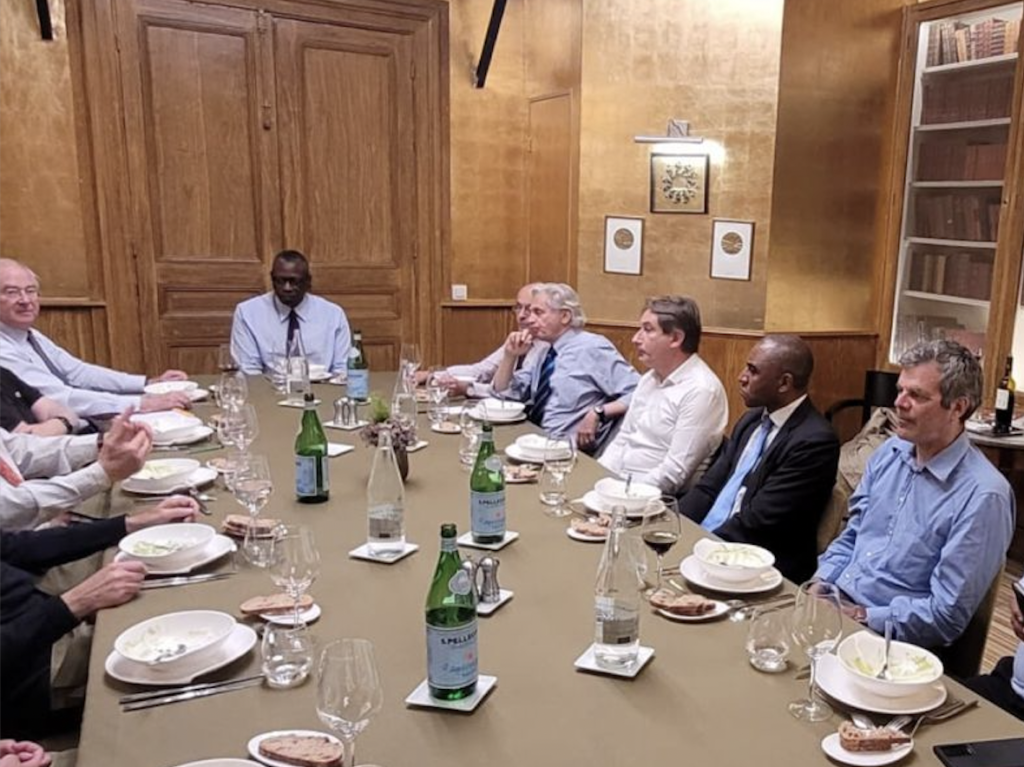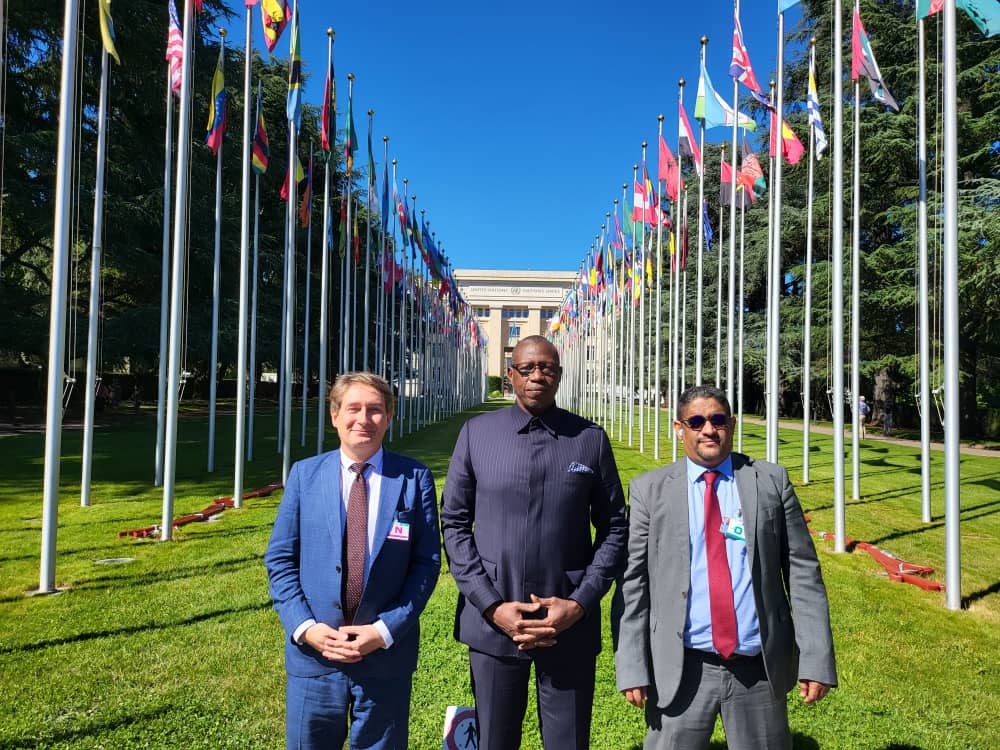The Bridge Tank has partnered with the OMVS (Senegal River Development Organization) for a European tour to promote hydro-diplomacy which took place from June 9 to 24, 2022 in Geneva, Oslo, The Hague, Paris and Brussels. Hamed SEMEGA, High Commissioner of the OMVS and member of the Board du Bridge Tank, and Joël RUET, President of the Bridge Tank, met with many interlocutors to discuss topics related to hydrodiplomacy: the international law of international water resources, sustainable hydro-development, peace built by the shared management of cross-border basins, or even the preservation of the headwaters of major rivers.
The Bridge Tank and the OMVS have decided to organize a workshop on these issues next fall with all the actors with whom they have exchanged and by extending it to many political leaders and associations.
This tour follows the joint work carried out during the World Water Forum 2022, in which The Bridge Tank was associated. The OMVS was then honored with the Hassan II Grand Prize for water. According to the jury, the West African organization based in Dakar, which brings together Mali, Mauritania, Senegal and Guinea, was distinguished for its action in favor of the “achievement of water and food security” of the greater basin. cross-border, but also for its action for “peace, prosperity and territorial development” of its member countries. Hydrodevelopment and hydrodiplomacy have indeed been at the heart of the organization’s model. The OMVS has, in fact, operated for more than 50 years independently of national or international tensions in the region it covers; it served as a model for the revitalization of its sister organization for the Gambia River, and the organization regularly receives visits from river organizations from all over the world, including Central Asia.
Water issues, in particular those around basins, are generally tackled in a utilitarian approach, i.e. through access to water. This vision is consensual within international organizations and at international events. However, the pessimistic evolution of aquifer ecosystems impacted by climate change raises the question of the sustainability of these resources.
It is in this perspective, rooted in international and UN legal aspects, that the delegation began its tour in Geneva during the conference “Lessons and perspectives on water cooperation for Africa and Europe: from the Forum from Dakar in 2022 to the United Nations Water Conference in 2023 at the Palais des Nations. Mr. Semega thus presented the work and the potential of the OMVS, which is often recognized as a model organization, on the organizational, political, legal and investment levels.
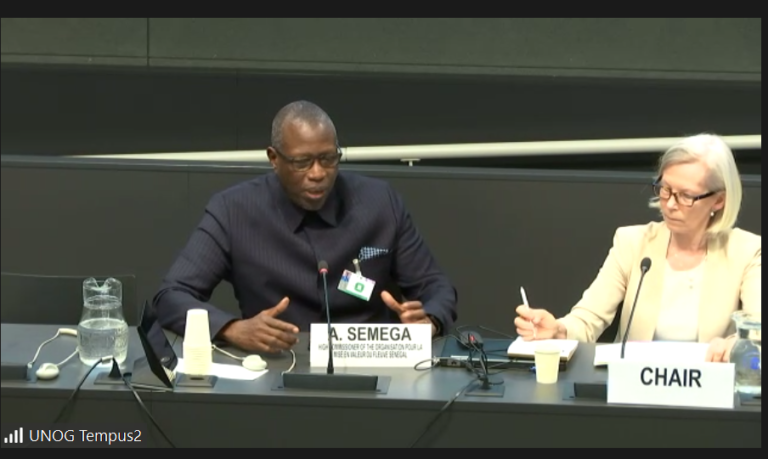
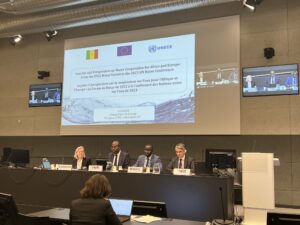
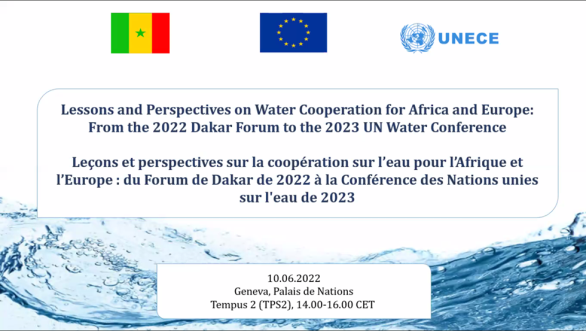
To deepen the subject, the delegation then met Professor Mads Adenaes, specialist in international law at the University of Oslo in Norway. This exchange was an opportunity to discuss the perspectives of international water law. They insisted on the fact that water must be approached in a holistic way, as a common good, that is to say that water must no longer only be an object of rivalry between powers, but be a good vital common to share. This is what basin organizations seek to advocate, which do not focus on the state scale, but on the resource scale.
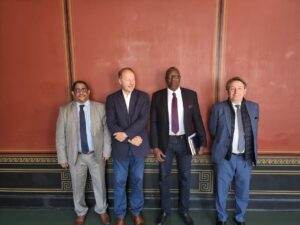
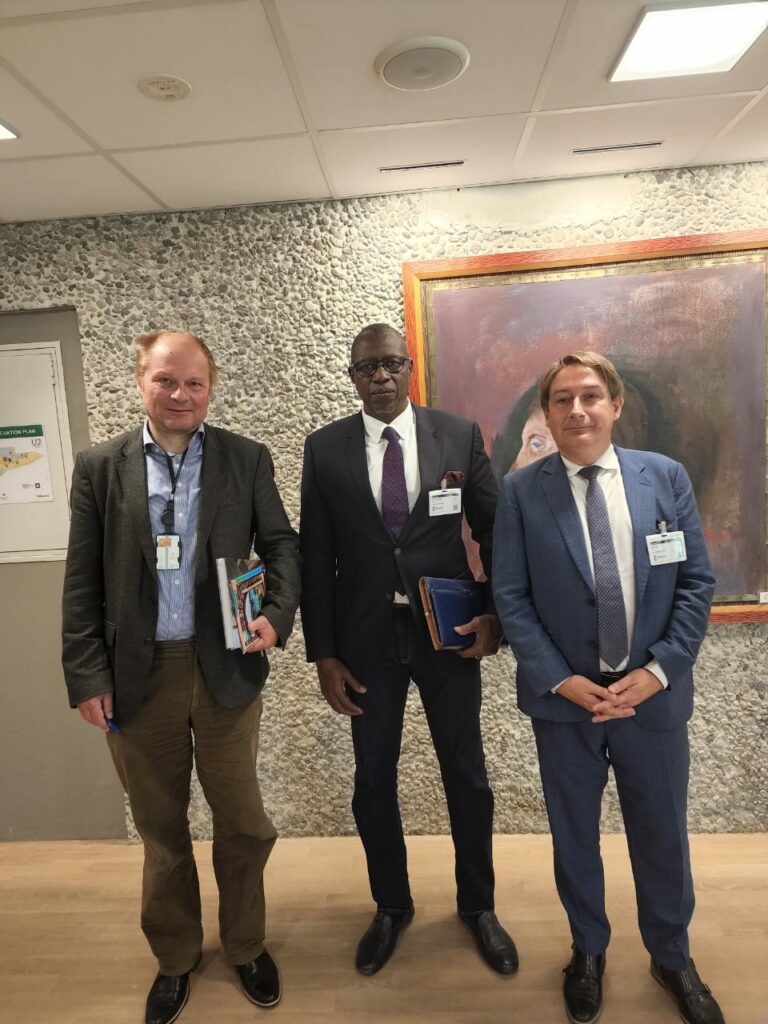
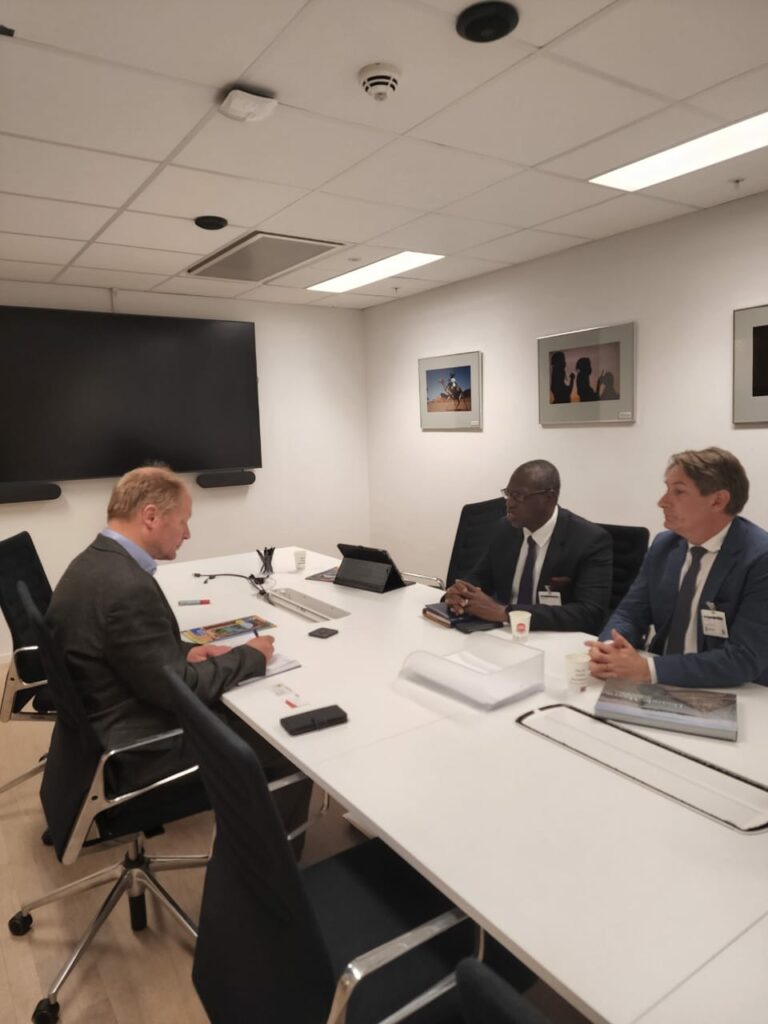
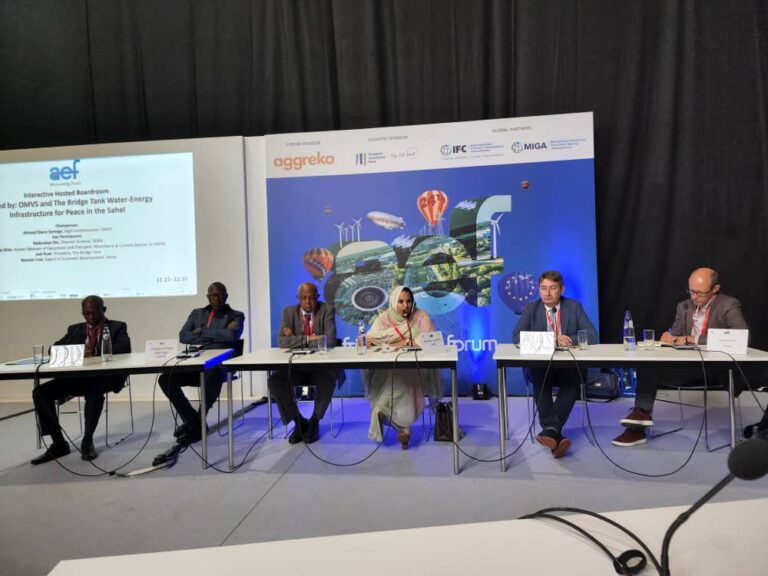
In terms of hydrodevelopment, water is a major element of ecosystems, societies and economies, which is why it is necessary for their proper development. Mr. Semega had the opportunity to discuss with actors from the world of development, in particular Mrs. Marie-Noëlle Reboulet, President of GERES and Mr. Pierre Jacquemot, President of the Initiatives Group, whose core business is energy solidarity, Climate and Social Affairs and Mr. Lars Andreas Lunde, Head of the Nature and Climate Section of the Norwegian Development Agency, NORAD. These structures have made it possible to draw the following conclusion: a multitude of solutions exist on the ground, with a strong bottom-up dimension, which requires greater knowledge, consultation and coordination to act and share know-how.
The discussions were fruitful to the point of organizing a new meeting with GERES and the Initiatives Group of which the OMVS is a member, in the coming weeks. These discussions were also able to continue thanks to the organization of a side event in Brussels, by The Bridge Tank and the OMVS, during the “Africa Energy Forum” on the theme “Water-energy infrastructure for peace in the Sahel”, in the presence of Minister Amal Mint Maouloud, former Mauritanian Minister of Equipment and Transport, Mr. Abdoulaye Dia, Managing Director of SEMAF/OMVS and Mr. Romain Cres, Economic Development Specialist within GERES.
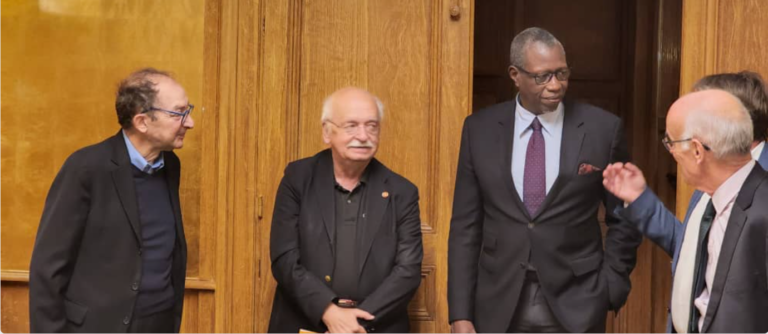
The actions of the OMVS are carried out in favor of peace, since according to the High Commissioner “whoever knows how to share water, can share everything”. This message was repeated many times during the European tour, in particular during the meeting with the Prime Minister, Jean-Pierre Raffarin, President of Leaders for Peace.
Mr. Raffarin and Mr. Semega agreed on the importance and role of basin organizations in contributing to hydrodiplomacy and peace in the world. Hydrodiplomacy has a more global dimension than hydropolitics, which remains reserved for States. Hydrodiplomacy underlines the idea that the management of water and basins is no longer the business of the States, but of everyone around a resource within the territories.
On this subject, The Bridge Tank was at the initiative of a working lunch between the High Commissioner and Mr. Erik Orsenna, President of the Initiative for the Future of the Great Rivers (IAGF) in the presence of influential personalities in the field around the situation of natural resources in West Africa and hydrodiplomacy in the Senegal River Basin, on the occasion of which our Board Member Ambassador Stéphane Gompertz and Me Jean-Claude Beaujour were present.
Last but not least, the delegation held working meetings with the Norwegian Cooperation Agency, the Ministry of International Cooperation in The Hague, IOWater and the International Network of Basin Operators and the STOA infrastructure investment fund in Paris.
On its own continent, the OMVS has been entrusted, within the International Association of River Basin Operators, with the technical secretariat of the association bringing together its active members on the African continent. As peace goes through development but also through democratic decisions, the OMVS has set up a committee of river basin users, an original body for open consultation with civil society. Aware of its responsibilities, the OMVS, an organization which was created in 1972, is today engaged in a forward-looking reflection on its future, and on the future of its contribution to Africa and to the world.
In this context, the exchange tour with peers, experts and leaders from all areas of society in all the capitals of peace and the areas of river innovation, nature conservation and in particular source river ecosystems, aims to share the results of this success story with stakeholders from the United Nations GA, the African Union, the academic and civil society communities, work with which The Bridge Tank is associated.
